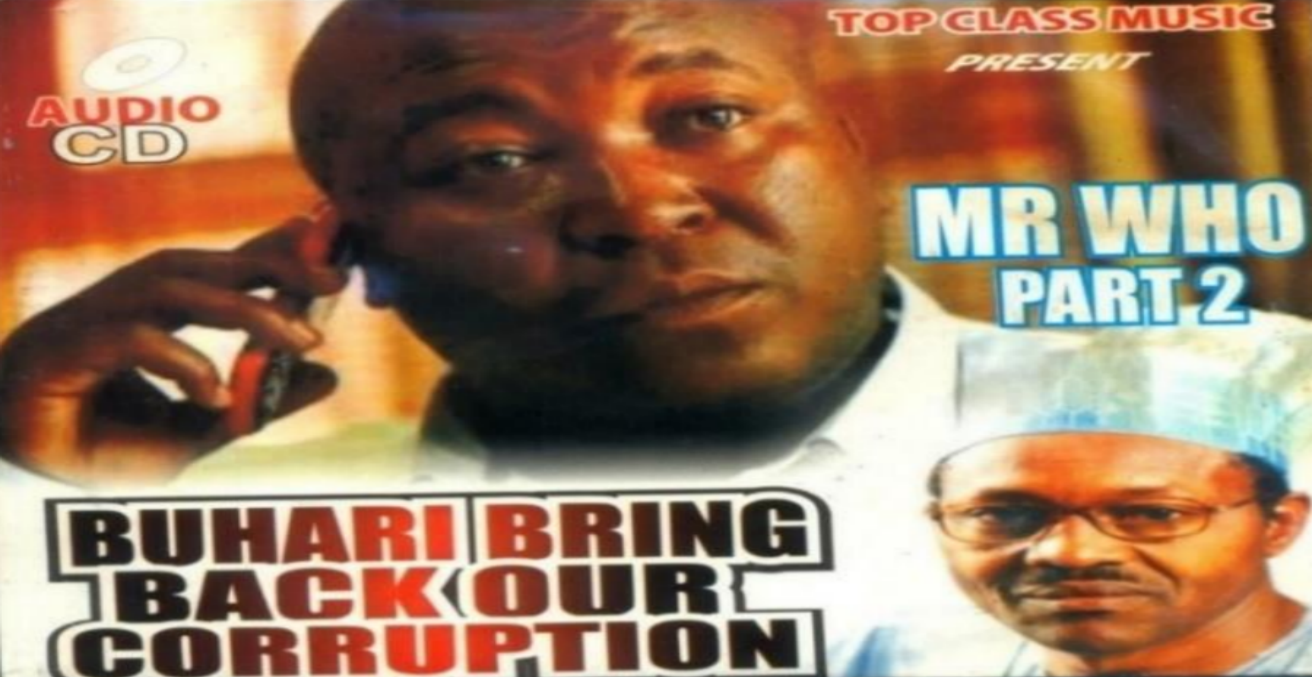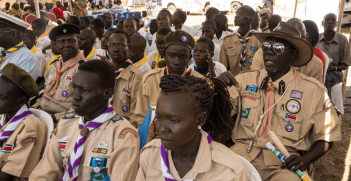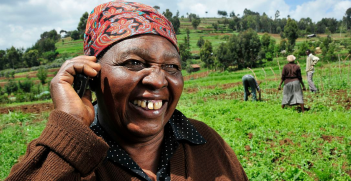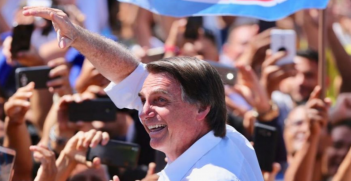Bring Back Our Corruption in Nigeria

Nigeria’s anti-corruption campaign faces opposition: from the citizens who voted for the government to fight corruption.
The incidence of political corruption in sub-Saharan Africa is disturbing. Also of concern is the high mortality rate of government anti-corruption campaigns. A common belief is that anti-corruption efforts often fail due to machinations by powerful elements in the governing class, whose continuous reproduction relies on unimpeded and scot-free access to public resources. Another common notion is that, as victims, everyday citizens are unreservedly willing to support anti-corruption efforts.
But our recent study on the experience in Nigeria reveals that citizens can themselves wreck anti-corruption programmes such as those initiated by President Muhammadu Buhari. The paradox is that Buhari’s ascension to office in 2015 was partly a function of popular discontent with unfettered pillaging by politicians since the transition to democracy in 1999 and more so in the years leading to 2015. Buhari’s victory over the incumbent at the time—President Goodluck Jonathan—was largely based on voters’ perception of him as ‘incorruptible’ and a proven capacity to tackle corruption. So what went wrong?
The onslaught on corruption
President Buhari enforced the Treasury Single Account policy, which put government revenue receipts and expenditure under careful scrutiny. Previously comatose anti-corruption agencies suddenly sprang to life, effecting a series of arrests and prosecution of politicians implicated in corruption schemes.
More than USD three billion in looted government money was recovered, some abandoned in fear by individuals whose identities remain unknown. Also far-reaching was the daring efforts to trim down multi-million dollar pork-barrel money, dubbed the ‘constituency development fund’, which had been ritually provided in the national annual budget for parliamentarians.
At the 2016 World Economic Forum in Davos, Switzerland, then United States Secretary of State John Kerry expressed his government’s support for the unprecedented onslaught on corruption.
The counter-response
While the anti-corruption campaign unsurprisingly elicited negative reactions from the political class, citizens have also vented their resentment through the ‘Bring Back Our Corruption (BBOC)’ riposte. On face value, the BBOC counter-response comes across as a cynical catch-phrase mimicking the ‘Bring Back Our Girls’ campaign demanding the return of over 200 Chibok School girls seized by Boko Haram in 2014.
But our study shows that rather than cynicism, the BBOC campaign is a genuine protest against the adverse impacts the anti-corruption campaign has had on the flow of proceeds from corruption from politicians to citizens. On social media, talkback radio programmes and daily conversational spaces, the BBOC promoters call for a return to the time political corruption was prevalent and unchallenged.
A commentator, Moses Ochonu, describes the BBOC riposte as a nostalgia not exactly for corruption “but for a period in which, despite or because of corruption, the flow of illicit government funds created a sense of economic opportunity and prosperity.” Typical of systems where poverty is rife, public institutions are unresponsive and social security schemes are unfair and inadequate, millions of vulnerable Nigerians informally turn to politicians with their material needs. As politicians spend from their spoils to meet constituents’ particularistic demands, they get votes in return and a mass of devotees with sundry political usefulness. As the Buhari onslaught on corruption put a considerable block on politicians’ illicit inflow, constituents experienced a drastic decline in the trickles that normally come their way.
Worthy of note is that the anti-corruption programme coincided with a recession triggered by the drop in oil prices in the global market in 2015. Government revenue receipts from oil declined, the local currency lost value against major international currencies, prices of imported goods soared and inflation rose to nearly 20 per cent. Citizens, who had hoped for a better standard of living under the new administration, found themselves sinking deeper into misery.
Citizens continue to blame the hardship entirely on the fight against corruption. Mbakwe, a taxi driver, explained: “…all these people shouting ‘‘Bring back our corruption!’’ are not just being cynical, they are expressing genuine frustration that politicians no longer give them money and food like before when stealing was allowed.” A journalist, Abolade, believes the BBOC counter-response was to be expected: “This is not to glorify corruption. You have to understand that in a dysfunctional country…corruption has its advantage…A government comes in…and in a cold-turkey manner tries to cut people off. That reaction was expected.”
The political economy of anti-corruption
A law lecturer at the University of Ghana, Raymond Atuguba, believes the BBOC reaction is an indication of a “suboptimal theorisation of corruption in Nigeria” by the Buhari administration. Although the intention was good, the administration misjudged the reach of proceeds from political corruption and its functional value to a significant segment of over 110 million impoverished Nigerians. The administration failed to appreciate how having an effective and extensive social security programme alongside the war on corruption could have filled the vacuum and put the people on the side of the anti-corruption campaign.
One can conjecture that the apparent capitulation of the anti-corruption programme may be partly due to the realisation that the administration now walks a lonely road as the 2019 presidential election approaches. Pro-corruption politicians’ fight to restore business-as-usual continues to receive a boost from enraged citizens, who now believe that the way out of biting economic circumstances is to usher out the president and his anti-corruption campaign through the ballot.
Allison Felix Timipere is a doctoral student at the Graduate School of International Development, Nagoya University, Japan.
Dr Zibima Tubodenyefa is a political science lecturer at the Niger Delta University, Wilberforce Island, Nigeria.
This article is adapted from the author’s presentation “Combating Elite Corruption in Nigeria and the Catch-22 Situation: Revelations from the Buhari Anticorruption Programme” at the International Political Science Association World Congress on 21-25 July.
This article is published under a Creative Commons Licence and may be republished with attribution.





